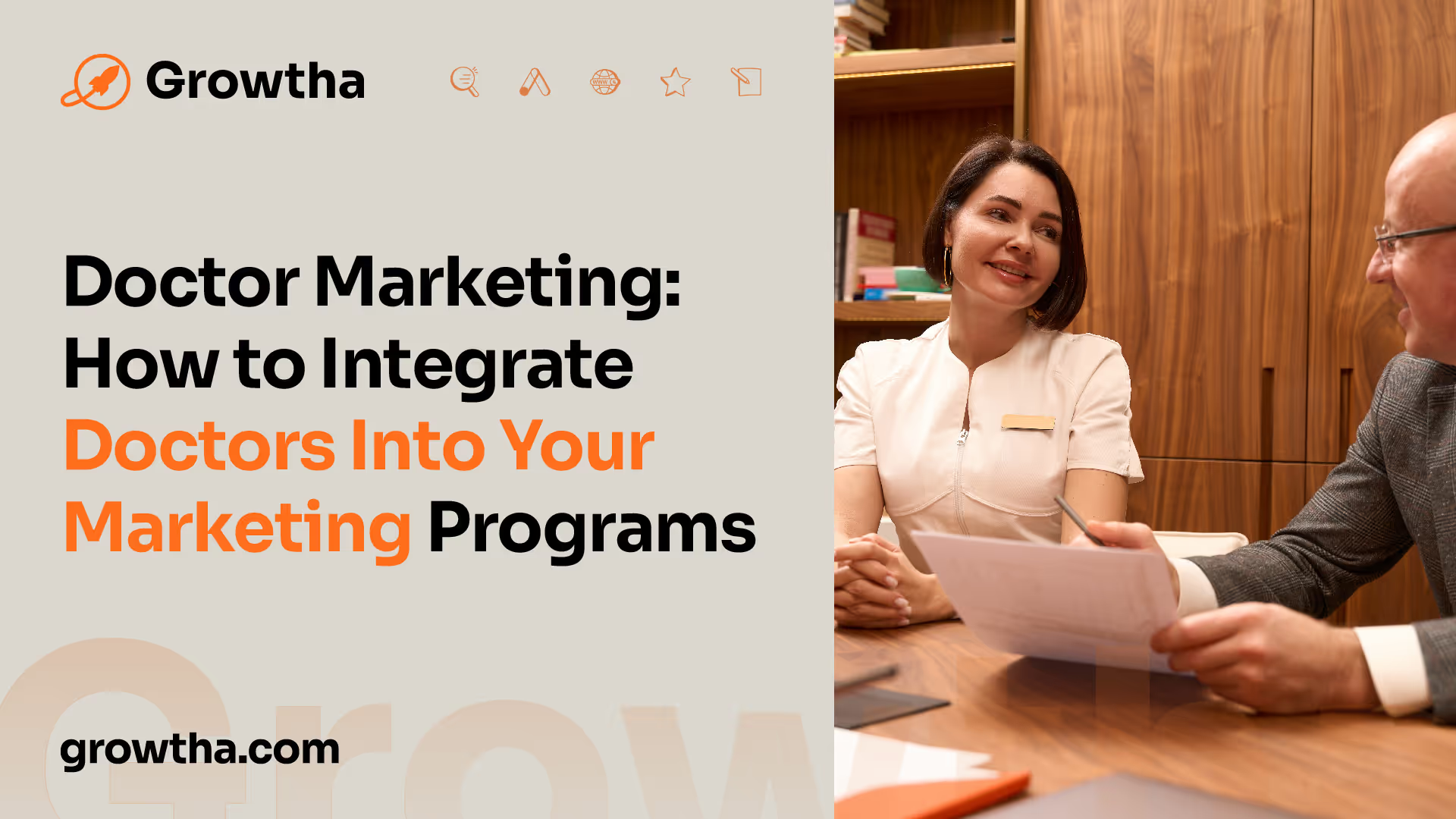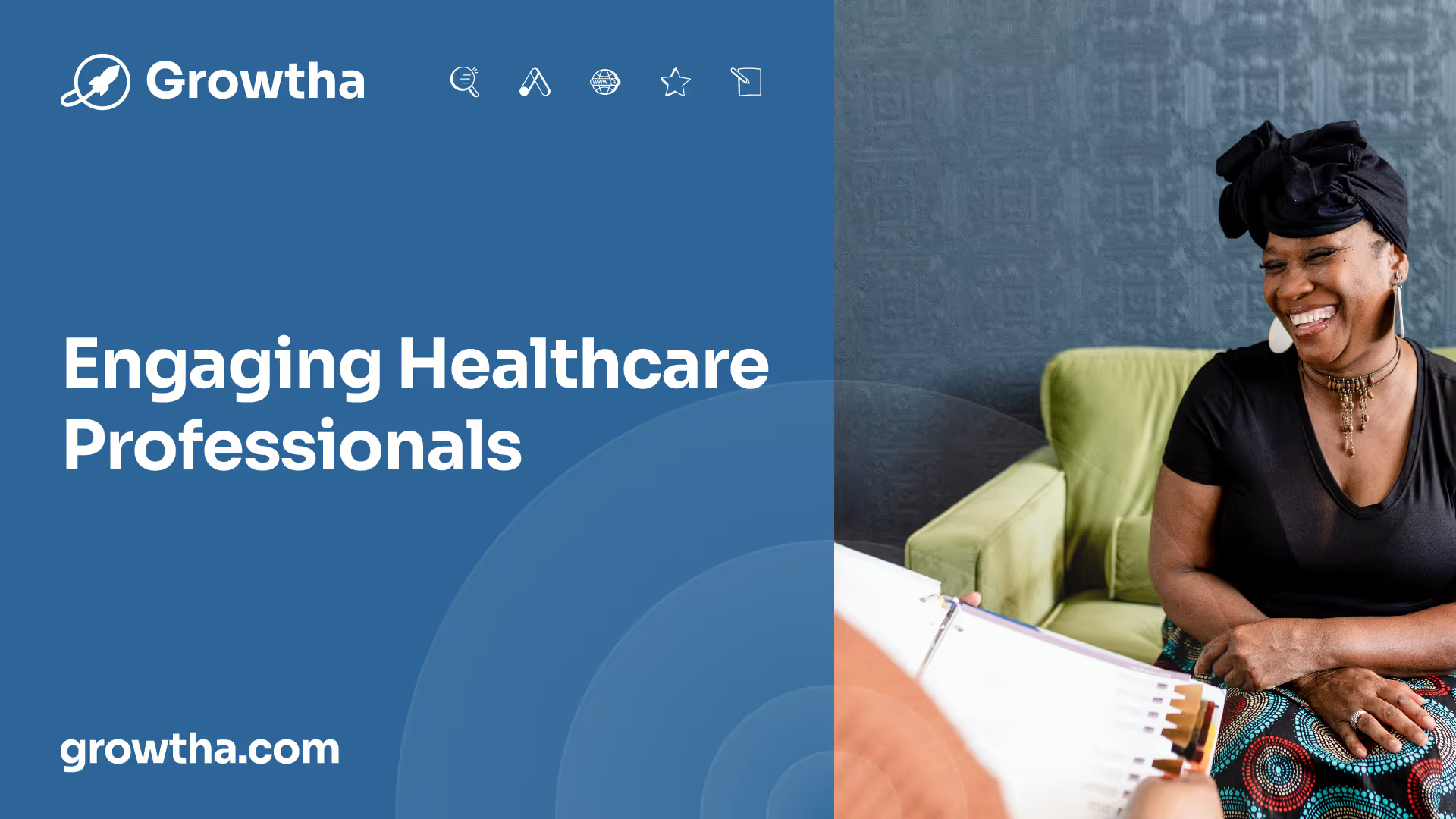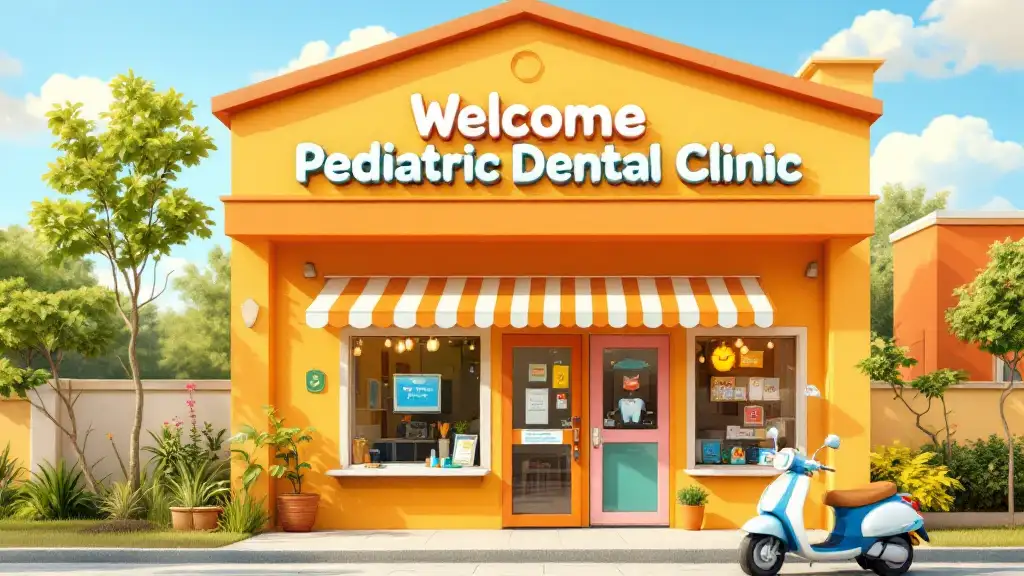Doctor Marketing: How to Integrate Doctors Into Your Marketing Programs
To effectively promote healthcare services, it is essential to integrate doctors into marketing programs.


Doctor Marketing: How to Integrate Doctors Into Your Marketing Programs
Integrating Doctors into Marketing Programs
To effectively promote healthcare services, it is essential to integrate doctors into marketing programs. This section will explore the importance of digital marketing and building patient loyalty as key components of successful doctor marketing strategies.
Importance of Digital Marketing
In today's digital age, a robust online presence is crucial for doctors and healthcare providers. A recent study indicates that a significant number of individuals search online for information about treatment options and healthcare providers, emphasizing the importance of a digital healthcare marketing strategy in expanding the patient pool.
Digital marketing provides an excellent platform for doctors to showcase their services, whether through social media channels or websites. It allows potential clients to easily access and view services with just a few clicks, at any time [1]. By creating compelling online content and engaging with patients through digital channels, doctors can effectively communicate their expertise, instill trust, and attract a wider patient base.
One key advantage of digital marketing is its ability to maximize a doctor's online presence and grow their brand identity. Search engine optimization (SEO) techniques play a pivotal role in making it easier for patients to find doctors online. By optimizing their websites and online profiles, doctors can improve their visibility in search engine results, ensuring that they are discoverable by those seeking relevant healthcare services.
Building Patient Loyalty
Building patient loyalty is a crucial aspect of doctor marketing. Satisfied patients can become strong brand advocates and a positive referral base, contributing to the growth of a doctor's practice. By marketing medical services effectively, doctors can encourage satisfied patients to leave feedback or reviews, facilitating improvements in service delivery [1].
Digital marketing offers various tools and platforms to nurture patient loyalty. Social media channels, such as Facebook and Instagram, provide opportunities to engage with patients and share valuable healthcare information. By creating informative and engaging content, doctors can establish themselves as trusted sources of medical knowledge and build long-lasting relationships with their patients.
Additionally, digital marketing enables doctors to implement patient-centric strategies. Personalized email campaigns, for example, allow doctors to stay connected with their patients, providing valuable health tips, appointment reminders, and updates. By delivering relevant and timely information, doctors can enhance patient experience and foster loyalty.
By embracing digital marketing strategies and focusing on patient loyalty, doctors can effectively integrate themselves into marketing programs. By leveraging the power of digital platforms and building strong relationships with their patients, doctors can expand their reach, attract new patients, and strengthen their reputation in the healthcare industry.

Leveraging Patient Testimonials
Patient testimonials can be a powerful tool in healthcare marketing, as they provide authentic stories of real people who have had positive experiences with healthcare services. These testimonials serve multiple purposes, including building trust, attracting new patients, and creating a loyal patient base. Incorporating patient testimonials into a healthcare marketing strategy can be a game-changer in today's competitive landscape [2].
Impact of Patient Stories
Patient testimonials humanize a brand and create an emotional connection with potential patients. When individuals are seeking healthcare services, they often rely on the experiences of others to make informed decisions. Patient stories provide social proof and help potential patients feel more confident in their choice of healthcare provider.
By sharing genuine stories of individuals who have had positive outcomes or exceptional experiences, healthcare providers can inspire trust and showcase the quality of care they offer. These testimonials serve as powerful endorsements that can influence the decision-making process of potential patients.
Strategic Use of Testimonials
Incorporating patient testimonials ethically and strategically is essential to unlock their full potential and create a lasting impact on the target audience. Here are some key considerations when utilizing patient testimonials in healthcare marketing:
- Collecting and Showcasing Stories: Healthcare practices should actively collect patient stories and testimonials. This can be done through surveys, interviews, or by encouraging patients to share their experiences voluntarily. It's important to obtain proper consent and ensure patient privacy when sharing these stories.
- Measuring Impact: It's crucial to track and measure the impact of patient testimonials. This can be done through various metrics, such as website engagement, appointment bookings, or patient satisfaction surveys. By analyzing this data, healthcare providers can determine which testimonials are most effective and make data-driven decisions regarding their marketing strategies.
- Using Testimonials Strategically: Patient testimonials can be utilized across multiple marketing channels, including websites, social media platforms, and advertising campaigns. They should be placed strategically in areas where potential patients are likely to encounter them. For example, testimonials can be featured prominently on a homepage or used in targeted social media ads to reach specific demographics.
- Highlighting Diverse Experiences: To cater to a wide range of potential patients, it's important to showcase testimonials from individuals with diverse backgrounds and medical needs. This helps potential patients identify with the stories and feel that their specific concerns or conditions are understood and addressed.
By incorporating patient testimonials effectively into a healthcare marketing strategy, healthcare practices can leverage the power of authentic stories to build trust, attract new patients, and establish a strong reputation in the digital age. These testimonials have the potential to go beyond marketing, impacting the overall quality of care provided and the reputation of the healthcare practice.

Engaging Healthcare Professionals
When it comes to marketing in the healthcare industry, engaging healthcare professionals is a crucial aspect. By effectively reaching out to doctors and other healthcare professionals, medical practices and facilities can establish strong relationships, increase visibility, and drive patient referrals. In this section, we will explore two key factors in engaging healthcare professionals: digital expectations and effective communication channels.
Digital Expectations
In today's digital age, healthcare professionals have certain expectations when it comes to digital marketing efforts. According to a study by Karina Morley, Global Head of External Scientific Affairs at AstraZeneca, during the lockdown period, 59% of physicians appreciated the option of a digital offering, but only 36% were satisfied with what was provided [3]. This highlights the importance of meeting their expectations and providing a seamless digital experience.
Healthcare professionals want higher quality and relevant content tailored to digital channels. They expect on-demand, self-service channels that resemble face-to-face engagement. Websites and portals should be optimized and localized for deep interactivity with content. In addition, there is a growing interest in future services like chatbots and medical education services. Meeting these expectations helps in establishing a strong digital presence and fostering engagement with healthcare professionals.
Effective Communication Channels
To engage healthcare professionals effectively, it is essential to identify and utilize the most effective communication channels. While each professional may have their own preferred communication methods, there are certain channels that have shown to be effective across the board.
Email remains a popular and effective channel for communication with healthcare professionals. It allows for personalized and targeted messaging, providing an opportunity to share valuable information, updates, and invitations to events or conferences. Additionally, social media platforms, such as LinkedIn and Twitter, can be utilized to connect with healthcare professionals, share relevant content, and establish thought leadership.
Another important communication channel is professional networking platforms and online forums specific to the healthcare industry. These platforms provide opportunities for healthcare professionals to connect, share knowledge, and collaborate. By actively participating in these communities, medical practices and facilities can build relationships and establish credibility among healthcare professionals.
By understanding the digital expectations of healthcare professionals and utilizing effective communication channels, medical practices and facilities can successfully engage with this vital audience. It is crucial to provide a seamless digital experience while delivering valuable content and fostering meaningful connections. This will not only strengthen relationships with healthcare professionals but also contribute to the growth and success of the overall marketing efforts in the healthcare industry.
Multichannel Marketing Strategies
In the ever-evolving landscape of healthcare marketing, it has become increasingly important for healthcare organizations to adopt multichannel marketing strategies. By leveraging multiple channels, both online and offline, organizations can effectively reach their target audience and deliver a consistent consumer experience. This section will explore the benefits of integrated marketing and the significance of maintaining a consistent consumer experience.
Integrated Marketing Benefits
Integrated marketing, also known as multichannel marketing, allows healthcare brands to deliver a consistent consumer experience across all viable online and offline channels. This approach is crucial for healthcare brands as it deepens customer relationships, drives brand loyalty, and ensures reach to all target audience segments [4].
Implementing an integrated marketing campaign offers several benefits. Firstly, it increases the number of brand impressions across multiple channels, keeping the brand top-of-mind and increasing brand awareness. By reaching customers through various touchpoints, organizations can effectively capture their attention and build recognition.
Secondly, an integrated marketing strategy enhances marketing campaign performance. By delivering a cohesive brand story across channels, healthcare organizations can engage customers at different stages of their customer journey. This approach helps move customers further down the funnel, driving conversions and increasing the overall effectiveness of marketing efforts.
Furthermore, integrated marketing can save time and money by reducing unnecessary costs and streamlining business processes. By strategically selecting channels and integrating them into a cohesive marketing plan, organizations can optimize their resources and minimize wasteful spending.
Consistent Consumer Experience
In a world where customers are increasingly interacting with brands through multiple channels, delivering a consistent and positive consumer experience is paramount. According to a study, 95% of customers used a minimum of three channels to connect with a company in a single service interaction in 2017 [4]. This highlights the importance of providing a seamless experience across all touchpoints.
By adopting an integrated marketing approach, healthcare organizations can ensure a consistent consumer experience. This involves maintaining a cohesive brand identity, messaging, and design elements across all channels. Whether it's a website, social media, email marketing, or offline advertising, the consumer should experience a unified brand presence.
A consistent consumer experience builds trust and strengthens brand loyalty. When customers encounter a consistent brand experience, they develop a sense of familiarity and reliability. This fosters long-term relationships and encourages repeat engagements.
To achieve consistency, healthcare organizations should establish brand guidelines and ensure they are followed across all marketing channels. This includes maintaining consistent visual elements such as logos, color schemes, and typography. Additionally, messaging should align with the brand's values and voice, resonating with the target audience consistently.
By prioritizing an integrated marketing approach and delivering a consistent consumer experience, healthcare organizations can effectively engage their target audience, drive brand loyalty, and establish themselves as trusted industry leaders.
Content Marketing for Healthcare
In the realm of healthcare marketing, content marketing has emerged as a powerful strategy for engaging and educating patients. By creating informative and patient-centric content, healthcare providers can attract and connect with their target audience, building trust and establishing themselves as authoritative sources of information. Two key aspects of content marketing in healthcare include informative content creation and a patient-centric approach.
Informative Content Creation
Informative content creation is at the core of successful healthcare marketing strategies. By delivering valuable and relevant information, healthcare providers can position themselves as trusted sources of knowledge. This content can take various forms, such as blog posts, articles, videos, infographics, and podcasts, allowing for versatility in reaching and engaging different segments of the target audience.
When creating informative content, it's crucial to focus on providing accurate and up-to-date information. Healthcare professionals should take care to cite credible sources and use evidence-based research to support their claims. This helps build trust with the audience, as they recognize the commitment to delivering reliable information.
Additionally, healthcare providers should consider addressing common questions, concerns, and misconceptions related to their area of expertise. By anticipating and addressing these topics, providers can demonstrate their understanding of patient needs and establish themselves as valuable resources for healthcare information.
Patient-Centric Approach
A patient-centric approach is essential when developing content for healthcare marketing. Putting the patient's needs, preferences, and experiences at the forefront helps create content that resonates with the target audience.
To adopt a patient-centric approach, healthcare providers should consider the following:
- Empathy: Understanding the challenges and emotions that patients may experience allows healthcare providers to create content that addresses those concerns. Demonstrating empathy helps patients feel understood and supported.
- Clear and Accessible Language: Using plain language and avoiding medical jargon helps patients easily understand the content. Breaking down complex concepts into digestible information fosters better engagement and empowers patients to make informed decisions about their health.
- Visual Elements: Incorporating visual elements, such as images, diagrams, and videos, can enhance understanding and engagement. Visual aids can help simplify complex medical information and make it more accessible to a wider audience.
- Personalization: Tailoring content to specific patient demographics or health conditions can make it more relevant and impactful. By addressing unique concerns and providing targeted information, healthcare providers can better connect with their audience.
By adopting informative content creation and a patient-centric approach, healthcare providers can effectively engage their target audience, establish trust, and position themselves as valuable sources of information. Through content marketing, healthcare professionals can nurture meaningful relationships with patients and enhance the overall patient experience.
Reaching Doctors Effectively
When it comes to marketing to doctors effectively, utilizing SEO tactics and targeted advertising platforms can significantly enhance your outreach efforts. By incorporating these strategies into your marketing programs, you can increase visibility, engage with healthcare professionals, and drive relevant traffic to your website or campaigns.
SEO Tactics
Utilizing SEO (Search Engine Optimization) tactics is crucial for reaching out to doctors and other healthcare professionals. Understanding the terminologies used in the healthcare industry and utilizing digital tools like Google's Keyword Planner, SEMrush, or Ahref can help identify relevant keywords and phrases for effective healthcare marketing efforts [5].
By optimizing your website and content with targeted keywords, you can improve your organic search rankings and increase the likelihood of appearing in search engine results when doctors are looking for specific information or services. This can lead to increased visibility, brand recognition, and website traffic from healthcare professionals.
Additionally, creating high-quality, informative content that addresses the pain points and needs of doctors can further enhance your SEO efforts. By providing valuable and relevant information, you establish your credibility and expertise in the healthcare field, making your website a go-to resource for doctors seeking reliable information and solutions.
Targeted Advertising Platforms
In addition to SEO, targeted advertising platforms offer a powerful way to reach doctors and healthcare professionals. Here are some platforms that can be effective for healthcare marketing:
LinkedIn offers direct access to over 8.8 million healthcare practitioners, making it a significant platform for healthcare advertising. With its precise targeting capabilities, LinkedIn allows you to reach specific healthcare professional segments, such as doctors in a particular specialty or geographic location. You can leverage LinkedIn to encourage collaborations, promote products or services, and build thought leadership within the healthcare community.
YouTube
YouTube, being the second-largest search engine in the world, provides a significant platform for healthcare advertising [6]. It allows life science and healthcare companies to present complex information in digestible, visual formats and educate healthcare professionals on new treatments, technologies, and best practices. By creating engaging and informative videos, you can effectively capture the attention of doctors and provide them with valuable insights.
Twitter provides a real-time platform for life science and healthcare companies to engage with healthcare professionals. Its concise, fast-paced nature is ideal for sharing recent research, industry news, and product launches. Twitter's advertising options enable targeted outreach and networking opportunities for life science and healthcare firms. By actively participating in relevant healthcare conversations and utilizing Twitter's advertising features, you can effectively connect with doctors and build relationships within the healthcare community.
Google Ads
Google Ads offers life science and healthcare companies unparalleled reach and precision targeting. By strategically positioning yourself using search ads, you can capture interest across various online touchpoints. Display and video Google ads enable you to showcase your products, services, or educational content to doctors, driving targeted traffic to your website or landing pages.
By leveraging SEO tactics and targeted advertising platforms like LinkedIn, YouTube, Twitter, and Google Ads, you can effectively reach doctors and engage with healthcare professionals. These strategies allow you to tailor your marketing efforts to the specific needs and interests of doctors, ensuring that your messages are relevant, impactful, and resonate with your target audience.
References
[1]: https://www.getdeardoc.com/post/marketing-for-doctors
[2]: https://www.linkedin.com/pulse/captivating-audiences-potential-patient-testimonials-alohmayed
[3]: https://www.orientation.agency/insights/marketing-to-healthcare-professionals-digital-methods
[4]: https://www.linkedin.com/pulse/what-integrated-marketing-why-its-crucial-healthcare-brands-gandolf/
[5]: https://medicaldigitals.com/doctor-marketing/
[6]: https://medicaldigitals.com/healthcare-marketing-platforms/







